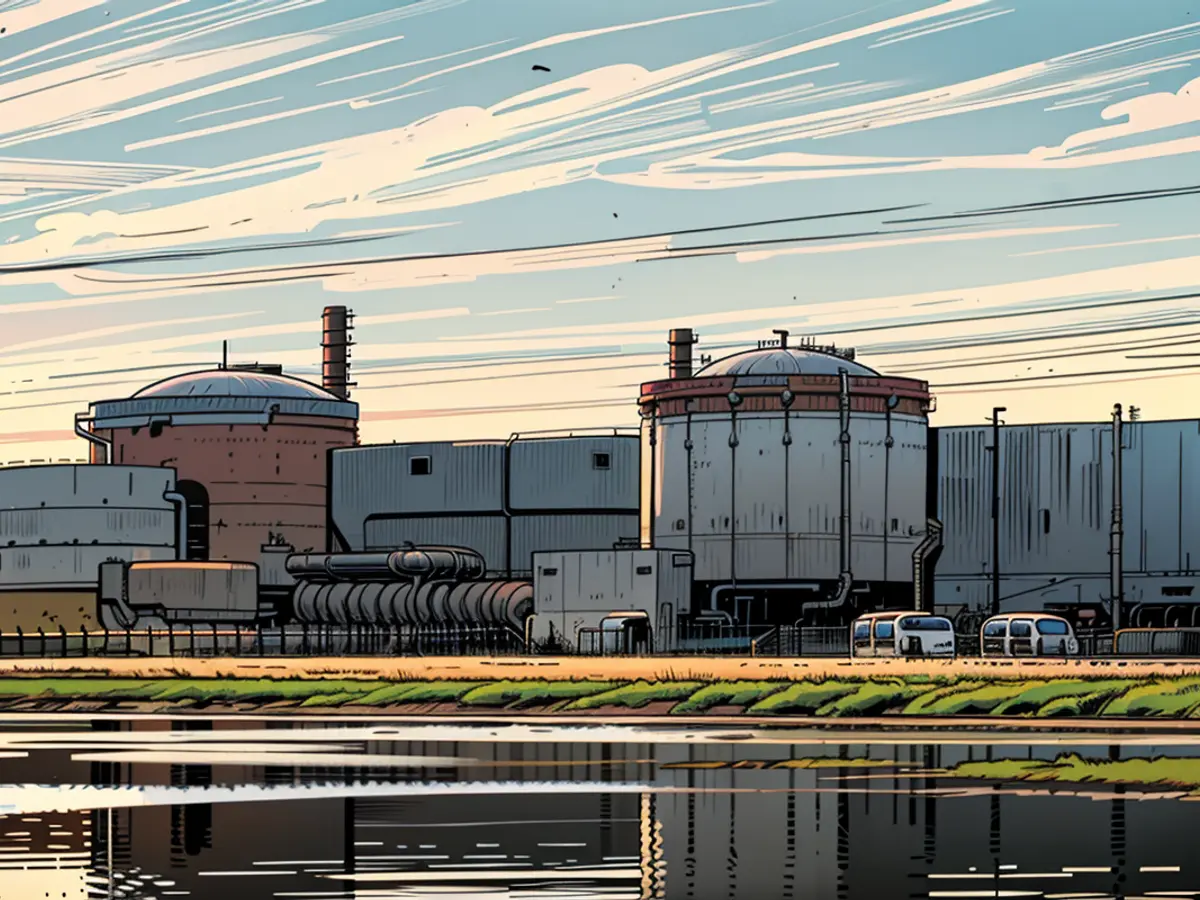- German concerns about Fessenheim reactors heard
In the planned shutdown of the Alsatian nuclear power plant Fessenheim, a French investigative commission has found that demands from neighboring Germany must be taken into account. For instance, it is necessary to monitor water quality on the German side of the Rhine, according to the report by the committee. Over 140 pages, the results of the public consultation on the shutdown of the nuclear plant are summarized.
The Fessenheim nuclear power plant, southeast of Colmar near the border with Germany, was shut down in 2020 after 42 years of operation. There had been harsh criticism from Germany for years due to suspected safety risks at the old plant.
More monitoring stations for radioactivity
To monitor that there is no radioactivity in the environment, the commission proposes additional monitoring facilities. The Stuttgart Ministry of the Environment had participated in the public consultation in the spring and called for close monitoring of radioactivity. There were statements from citizens on both sides of the Rhine, as well as submissions from authorities.
The report by the French committee from July also states that, when dismantling the plant directly on the German border, the sensitivity of the German side to the issues of nuclear power and radioactivity must be taken into account. The commission recommends, unsurprisingly, the dismantling of the nuclear plant.
France relies on nuclear power
Unlike Germany, France continues to rely on nuclear power for its energy supply and achieving climate protection goals. President Emmanuel Macron wants to significantly strengthen the nuclear sector in the country.
The dismantling of the nuclear power plant is expected to begin in 2026, according to earlier statements. A shutdown decree from the French government is still needed. According to the Alsatian regional newspaper "Les Dernières Nouvelles d'Alsace", the Parisian Ministry of the Environment is leading the process. The work is likely to take 15 years.
20,000 tons of radioactive waste
During the dismantling of the nuclear power plant, around 20,000 tons of radioactive waste will have to be disposed of, according to earlier statements. The larger part of this waste is reportedly only slightly contaminated. It is to be stored in eastern France.
The French energy giant EDF plans to build a recycling plant for slightly radioactive waste at the Fessenheim site. This so-called Technocentre is to be built on a previously unused area and is scheduled to start operation in 2031.
Opposition in Germany to the industrial project
The project is criticized by environmentalists on both sides of the Rhine, as they fear radioactivity in recycled metals. For the green-black state government in Stuttgart, there are several reasons why such a plant should not be located in Fessenheim, as Environment Minister Thekla Walker (Greens) announced in the spring. The planned Technocentre was not a topic of the completed public consultation.
The commission proposes to install additional monitoring stations on the French side of the Rhine to ensure no radioactivity leaks into Germany, given the proximity of the Fessenheim nuclear plant to the border. Despite France's reliance on nuclear power, the dismantling of the Fessenheim plant will generate around 20,000 tons of radioactive waste, which is planned to be stored in eastern France, raising concerns about radioactivity on the German side of the Rhine.








